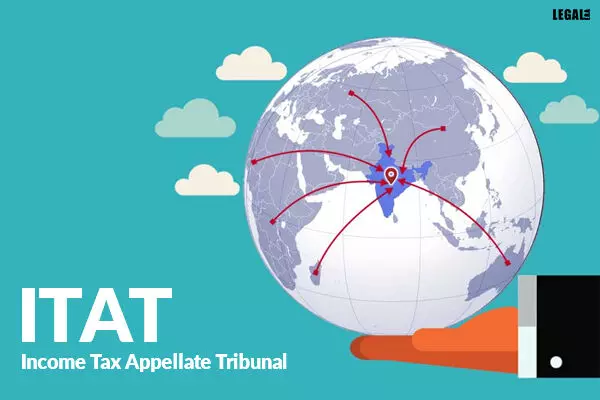- Home
- News
- Articles+
- Aerospace
- Agriculture
- Alternate Dispute Resolution
- Banking and Finance
- Bankruptcy
- Book Review
- Bribery & Corruption
- Commercial Litigation
- Competition Law
- Conference Reports
- Consumer Products
- Contract
- Corporate Governance
- Corporate Law
- Covid-19
- Cryptocurrency
- Cybersecurity
- Data Protection
- Defence
- Digital Economy
- E-commerce
- Employment Law
- Energy and Natural Resources
- Entertainment and Sports Law
- Environmental Law
- FDI
- Food and Beverage
- Health Care
- IBC Diaries
- Insurance Law
- Intellectual Property
- International Law
- Know the Law
- Labour Laws
- Litigation
- Litigation Funding
- Manufacturing
- Mergers & Acquisitions
- NFTs
- Privacy
- Private Equity
- Project Finance
- Real Estate
- Risk and Compliance
- Technology Media and Telecom
- Tributes
- Zoom In
- Take On Board
- In Focus
- Law & Policy and Regulation
- IP & Tech Era
- Viewpoint
- Arbitration & Mediation
- Tax
- Student Corner
- AI
- ESG
- Gaming
- Inclusion & Diversity
- Law Firms
- In-House
- Rankings
- E-Magazine
- Legal Era TV
- Events
- News
- Articles
- Aerospace
- Agriculture
- Alternate Dispute Resolution
- Banking and Finance
- Bankruptcy
- Book Review
- Bribery & Corruption
- Commercial Litigation
- Competition Law
- Conference Reports
- Consumer Products
- Contract
- Corporate Governance
- Corporate Law
- Covid-19
- Cryptocurrency
- Cybersecurity
- Data Protection
- Defence
- Digital Economy
- E-commerce
- Employment Law
- Energy and Natural Resources
- Entertainment and Sports Law
- Environmental Law
- FDI
- Food and Beverage
- Health Care
- IBC Diaries
- Insurance Law
- Intellectual Property
- International Law
- Know the Law
- Labour Laws
- Litigation
- Litigation Funding
- Manufacturing
- Mergers & Acquisitions
- NFTs
- Privacy
- Private Equity
- Project Finance
- Real Estate
- Risk and Compliance
- Technology Media and Telecom
- Tributes
- Zoom In
- Take On Board
- In Focus
- Law & Policy and Regulation
- IP & Tech Era
- Viewpoint
- Arbitration & Mediation
- Tax
- Student Corner
- AI
- ESG
- Gaming
- Inclusion & Diversity
- Law Firms
- In-House
- Rankings
- E-Magazine
- Legal Era TV
- Events
Payment to a foreign company with no permanent establishment in India is not royalty: ITAT

Payment to a foreign company with no permanent establishment in India is not royalty: ITAT
The bench ordered the assessing officer to delete the Indian firm's demand for TDS
The Kolkata bench of the Income Tax Appellate Tribunal (ITAT) has held that payment made to a non-resident not having a 'permanent establishment' in India cannot be considered 'royalty.'
The assessee company, Forum Projects Pvt. Ltd is registered and incorporated in India. It is engaged in the business of construction and development of projects.
The company was working on a project Forum Atmosphere in Kolkata. It entered into an agreement with Web Structures Pvt. Ltd., a structural engineering consultancy firm having a registered office at 146, Robinson Road, Singapore.
During the year, the assessee paid a sum of Rs.1,52,56,351 to the consultancy company as fees for providing the services. Incorporated in Singapore, Web Structures is a non-resident company with no permanent establishment in India.
As the recipient is a non-resident, the provisions of the Income Tax Act are not applicable in its case.
But, as per the assessing officer (AO), the assessee was liable to Tax Deducted at Source (TDS) from the payment made to the non-resident company. The AO said the payment to the foreign company was covered under the Double Taxation Avoidance Agreement (DTAA), hence fell under 'royalty' and meant it was a fee for technical services.
The AO observed that since there was no information available about Web Structures being a beneficiary of the payment, domestic tax rates were provided, and the tax payable was computed.
During the appellate proceedings, the Commissioner of Income Tax (Appeals) confirmed AO's order by holding that the payment made to the foreign company by the assessee fell within the DTAA between India and Singapore. It was, therefore, liable for TDS.
However, the Coram comprising Rajpal Yadav (vice-president) and Rajesh Kumar (accountant member) ruled, "We set aside the order of the CIT(A) and hold that the payment was made to the non-resident recipient not having any permanent establishment in India. Also, the services provided are not in the nature of royalty and fees for technical services. Accordingly, we direct the AO to delete the demand."



